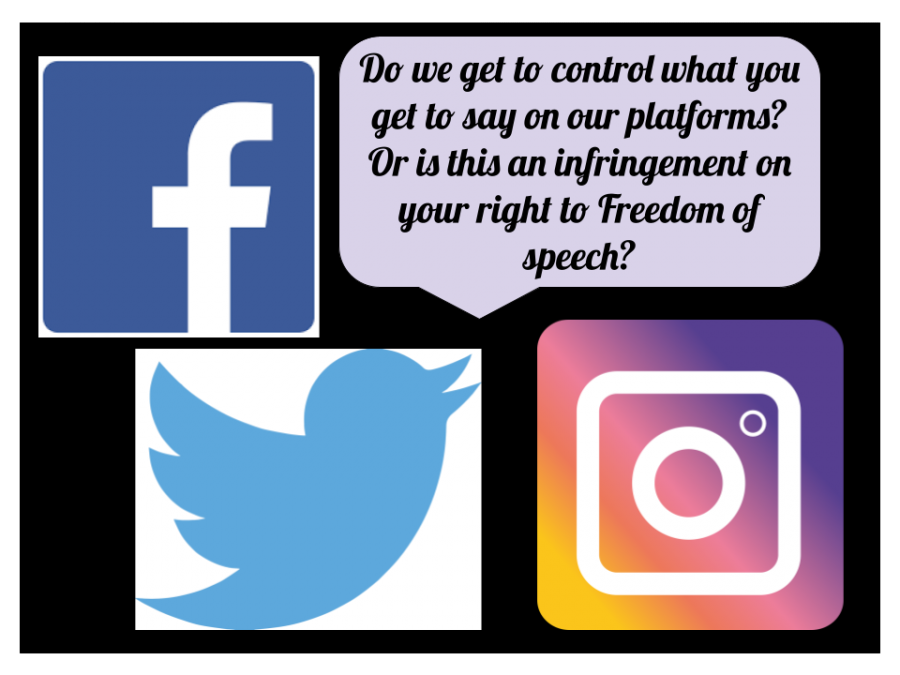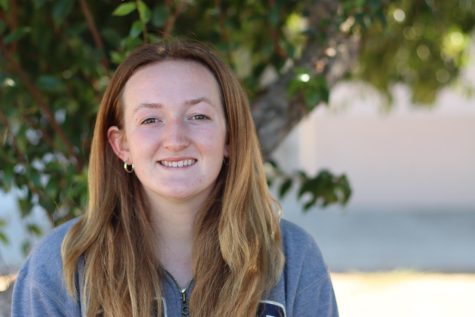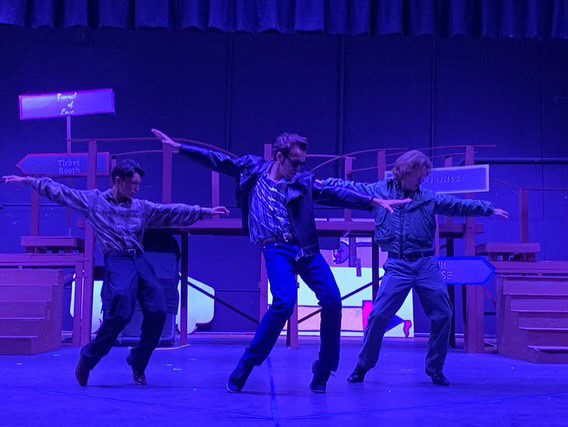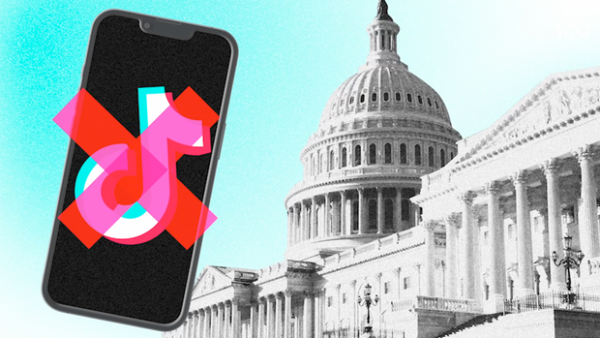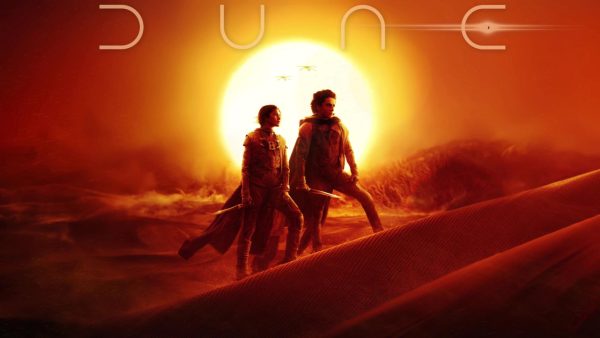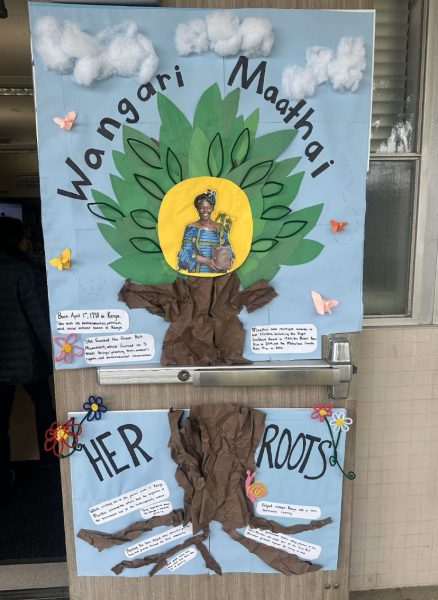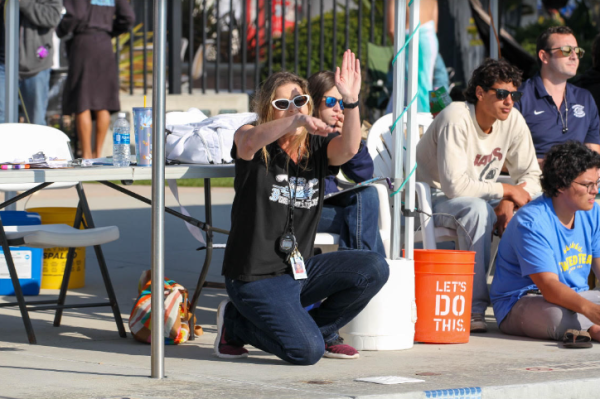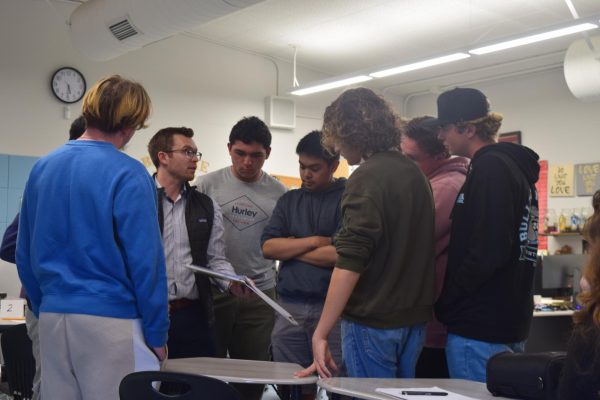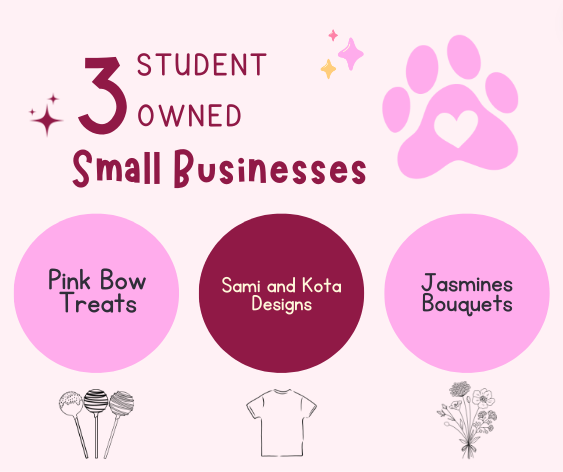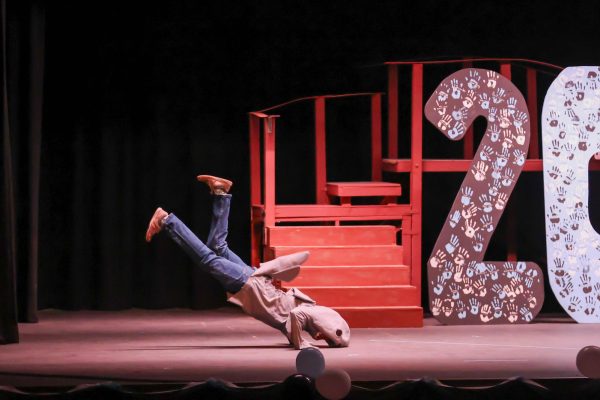Freedom of Speech: Are we at risk with social media censorship?
Graphic representing that social media is guiding what should be allowed to be on their platforms, causing some users to believe this is unnecessary censorship.
February 27, 2021
Roars of both protest and relief spread fast around the world on Jan. 8, 2021, as former president Donald Trump was permanently suspended from Twitter. Amongst all the chaos it has stirred the question: is media censorship putting our right to free speech at risk?
Social media was originally created for people all across the world to share with others at any time, giving everyone an equal opportunity to express themselves. Censorship online stops people from communicating with one another and limits their freedom to speak freely.
“I think if you silence one person then we must silence everyone. There are some very famous supreme court decisions that have protected “unpopular speech.” Just because you or I may not like it, it does not mean we can silence it or we would have to do it to everyone,” said Matthew Colton, a government and AP economics teacher.
Censorship in the media is caused by the fear of conversation. It needs to be recognized that many people may have different opinions or values than your own.
Companies such as Facebook use “fact-checkers” to monitor posts on their platforms. These “fact-checkers” go through accounts and slap labels and warnings on any controversial topic, or what some like to call, “fake news”. Notice how you never find an “Election Results” link to any of President Biden’s posts; yet when you pull up on Trump or any other conservative page, they are all tagged for “Fake News”.
“We had a former Facebook fact-checker come forward as a whistle-blower to reveal to us the process behind the scenes — how they get hired, how they target content, et cetera,” conservative politician and leader of the legal battle against Facebook fact checkers, Candace Owens said. “The entire process is a sham and we are looking forward to the opportunity to reveal that in the courts.”
Owens is leading a lawsuit against Facebook’s fact checkers, or how she calls them, “opinion-checkers”. She believes that the media has become somewhat controlled by the opposing party since 2016, when many Democrats refused to believe that Trump won the election. Social media, which was originally meant for positivity and community, has turned into a pile of political dispute.
Social media was originally created for people all across the world to share with others at any time, giving everyone an equal opportunity to express themselves.
Some forms of censorship are important. Messages suggesting forms of terrorism or illegal activity is necessary to filter and be investigated. Those who argue that censorship can lead to misinformation are technically correct, but it is for every individual to dive deeper into certain topics to find the truth.
“I do think it is an issue of any entity getting to choose what information we get. It is so reminiscent of the book 1984, Big Brother is watching and we the “thought police” will come get you for saying things against what those in control want,” Colton said.
Censorship in the media is caused by the fear of conversation. It needs to be recognized that many people may have different opinions or values than your own. Debates don’t need to end in one resolution or one correct position, that is the beauty of freedom of speech whilst living in the United States.
“I think any censorship at all will lead us down an ugly slippery slope we don’t want to get to. No matter what our political stance is. We need “civil discourse,” Colton said.

